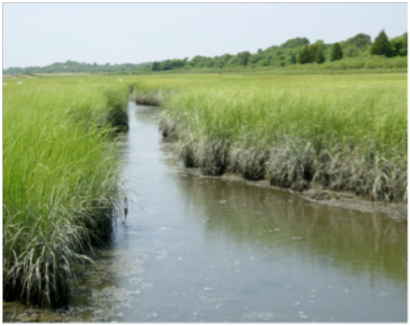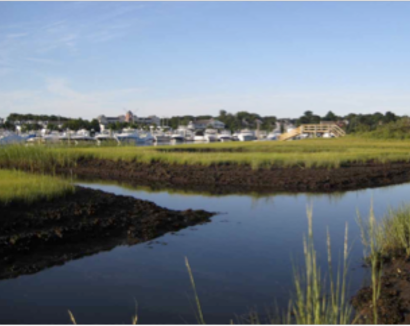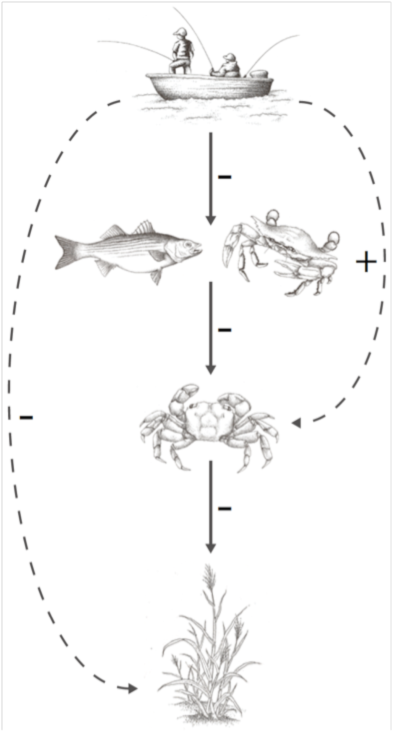|
Consumer control of salt marshes
Historically, salt marshes were thought to be controlled almost exclusively by bottom-up forces like temperature, salinity and nutrient availability. Over the past several decades, however, human impacts, like top predator depletion and eutrophication have shifted salt marshes to systems with strong top-down consumer control across the western Atlantic from the Canadian subarctic to South America. We have experimentally examined this shift in the control of salt marsh ecosystems in North and South America. Most recently we have focused a great deal of our attention on the consumer-driven die-off of marshes on Cape Cod and Long Island Sound that we have established is the consequence of intensive recreational fishing targeting top predators, depleting predator stocks near heavy recreational fishing areas, releasing the herbivorous crab, Sesarma reticulatum, from consumer control and triggering regional die-off of marshes associated with heavy recreational fishing. This work challenges both the notion that marshes are under strong bottom-up control and that recreational fishing is an ecologically benign activity. We are continuing this work by following the spread of Sesarma-driven die-off into Long Island Sound, critically examining if the southern spread of Sesarma-driven die-off is also being triggered by recreational fishing pressure. We are also examining mechanisms of marsh resilience and recovery in marshes abandoned by Sesarma since the cordgrass food supply has been entirely depleted, and we are beginning to explore consequences of predator depletion in other soft sediment habitats where their impact may be just as great, but less conspicuous.
 |
 |
| Intact Cape Cod salt marsh creek banks (on left) and Cape Cod creek banks being destroyed by crab grazing (on right) |
References
Bertness, M.D. and B. R. Silliman. 2008. Human disturbance driven consumer control of salt marshes. Conservation Biology 22:618-623.
Holdredge, C., A. Altieri, and M.D. Bertness. 2009. Crab herbivory-driven die off of New England salt marshes. Conservation Biology 672-679.
Altieri, AH, MD. Bertness, TC Coverdale, NC. Herrmann, ands C. Holdredge. 2011. Recreational fishing pressure triggers salt marsh die-off. In review
Coverdale, T. N. Herrmann, A. Altieri and MD. Bertness. 2011. Synergistic, delayed effects of human impacts on ecosystems. In review |
 |
| New England trophic cascade triggered by recreational fishing and leading to salt marsh die-off |
|



